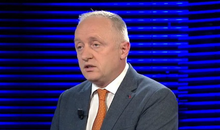
 Flash News
Flash News
The mystery of Renis Dobra's murder, the two main leads of the investigation are revealed
Rama's ultimatum: On Monday, all heads of administrative units must be dismissed
Fires in the country, 4 fires still active, what is the situation?
Rama targets Shkodra prosecutor again: Gjeli wrote philosophical essay with innocence of illegal construction
Wanted for theft, 26-year-old arrested in Durrës
Are the Chinese cameras that will monitor the elections in Kosovo worrying?
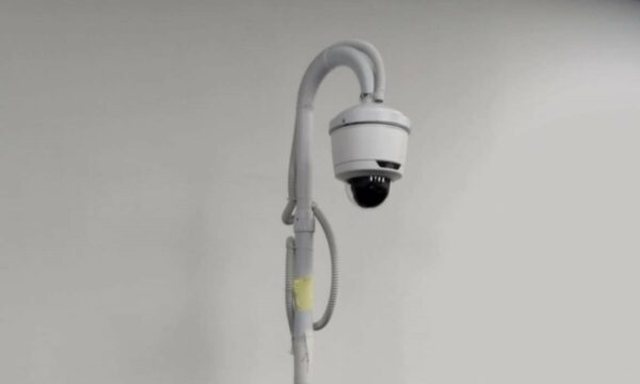
Cameras manufactured by a Chinese company, which was recently sanctioned by the United States, will be used at polling stations for the February 9 elections in Kosovo. The Kosovo company that supplied them to the Central Election Commission says there are no security concerns about the cameras, which it says comply with U.S. and Kosovo security requirements.
This year's parliamentary elections in Kosovo will bring an innovation in terms of monitoring the voting process, as, for the first time, there will be surveillance cameras in polling stations, writes Free Europe/Radio Liberty.
These cameras were contracted by the Central Election Commission at the end of 2024, through a tender process, where the winner was the company Besa Security, which offered a price of around 699 thousand euros.
This tender envisaged the supply of around 2,500 cameras, which will serve to monitor polling stations and to document possible irregularities during the process.
Besa Security told Radio Free Europe that, immediately after signing the contract last November, it had placed an order for these cameras manufactured by the Chinese company Uniview, for which it says it is the exclusive distributor for the territory of Kosovo.
There have been local media reports regarding these cameras, which, among other things, raise security concerns, because, since December 2024, Uniview has been under sanctions by the United States of America.
In this regard, the Kosovar distributor says that products manufactured by Uniview, and especially those it has supplied to the CEC, are in compliance with the US National Defense Authorization Act (NDAA).
"It is important to distinguish between sanctions imposed on certain entities, and restrictions affecting specific products. The products [we] supplied [to the CEC] do not fall under any restrictions that would prevent their use for civilian or institutional purposes," Besa Security's response to REL states.
The NDAA is a law that determines whether certain devices are considered dangerous to US national security.
The NDAA ban list includes several Chinese companies, including Hikvision and Dahua, but, so far, Uniview is not part of it.
The CEC has not responded to REL's questions regarding the contracting of these cameras.
But, in the tender conditions, the CEC also mentioned that the cameras must be compliant with the NDAA.
Meanwhile, during the presentation of plans for installing cameras in polling stations, the CEC assured that the cameras would not violate the privacy of voting.
“Vendosja e kamerave në vendvotime do të bëhet duke siguruar plotësisht fshehtësinë e votës, pasi ato do të vendosen në skajin tjetër prej ku do të jenë kabinat e votimit, dhe në asnjë rrethanë nuk do të mund të regjistrojë shënimin e preferencës nga ana e votuesit”, kishte thënë Valmir Elezi, zëdhënës i KQZ-së, në prill të vitit 2024.
Pse u sanksionua kompania kineze nga SHBA-ja?
Sanksionet që u vendosën ndaj Uniview-it janë pjesë e një fushate më të gjerë të qeverisë amerikane për të goditur me sanksione firmat kineze që prodhojnë teknologji vëzhguese, për shkak të “shtypjes ndaj ujgurëve dhe pakicave të tjera myslimane në rajonin perëndimor të Kinës, Shinxhiang”.
“Roli që qeveria amerikane thotë se Uniview ka pasur është ofrimi dhe, në disa raste, projektimi specifik i pajisjeve dhe softuerëve të mbikëqyrjes, që i lejuan Partisë Komuniste të Kinës t’i identifikonte dhe t’i monitoronte këto grupe etnike”, shpjegon Reid Standish, korrespondent i Radios Evropa e Lirë në Pragë, i cili fokusohet në çështjet globale që lidhen me Kinën.
Shtypja e grupeve etnike në Shinxhiang filloi në vitin 2017, dhe mori hov në vitet e mëvonshme, duke pasur në shënjestër ujgurët dhe grupet e tjera myslimane në Kinën perëndimore, si kazakët etnikë dhe kirgizët.
“E gjithë Kina është e mbikëqyrur rëndë dhe mbështetet në kamera dhe programe të të ashtuquajturit “Qyteti i mençur”, por, gjatë kësaj periudhe, Shinxhiangu u bë një nga vendet më të mbikëqyrura në botë”, thotë tutje Standish.
“Fushata [e shtypjes] çoi në krijimin e një sistemi të gjerë kampesh në Shinxhiang, ku njerëz nga këto grupe etnike u mblodhën dhe u vendosën në të ashtuquajturat kampe të ‘riedukimit’, ku ata u detyruan të mësonin kinezisht, të këndonin këngë patriotike, të mësonin doktrinën e Partisë Komuniste dhe, në shumë raste, iu nënshtruan shkeljeve të rënda të të drejtave të njeriut”, shpjegon ai.
Standish shton se “Uashingtoni dhe shumë vende perëndimore e kanë cilësuar këtë situatë si shkelje të rëndë të të drejtave të njeriut, ndërsa disa organizata ndërkombëtare e kanë quajtur madje spastrim etnik”.
REL-i ka raportuar në vazhdimësi në lidhje me sanksionet e SHBA-së ndaj kompanive kineze, përfshirë Dahua-n dhe Hikvision-in, të cilat, po ashtu, prodhojnë kamera vëzhguese.
Një hulumtim i REL-it, në vitin 2022, gjeti se kamera të sigurisë, të prodhuara nga këto dy kompani, janë të vendosura nëpër shumë institucione kosovare, përfshirë ndërtesën e qeverisë së Kosovës.
Autoritetet e Kosovës nuk kanë vënë sanksione për importin e këtyre pajisjeve.
Sa është e sigurt teknologjia kineze e vëzhgimit?
Përtej çështjeve etike që çuan në sanksionet e SHBA-së, sipas Standishit ka edhe çështje teknike që janë zbuluar me disa prodhues kinezë, të cilat shpesh janë përmendur si arsye për të mos i përdorur ato në ambiente të ndjeshme.
“Shqetësimet mbi të dhënat burojnë pjesërisht nga fakti se sistemet e mbikëqyrjes mbështeten në një farë mase në pajisjet dhe softuerët e prodhuesit të kamerave”, thotë Standish.
He adds that end users can deploy their own storage and networking systems, but “the data still goes through software designed by the manufacturer, and is often sent to the company’s servers in China, via the cloud.”
"There is no evidence or case that shows these cameras were used for interference, much less to influence an election. But, at a time when the integrity of elections is a major issue in today's democracies, the vulnerabilities of various brands raise the possibility of external interference," Standish emphasizes.
Chinese companies are the world's leading suppliers of surveillance technology. Their cameras are inexpensive, easy to use and install, and offer high performance.
Companies like Hikvision and Dahua are partly owned by the Chinese state, while Uniview is a private company but has participated in Chinese government contracts to monitor minorities in Xinjiang.
So far, the US and the UK have blacklisted several Chinese technology companies.
However, most European countries have not imposed such bans, but have chosen to remove Chinese cameras from use in government or military institutions. REL
Latest news

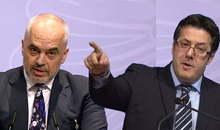

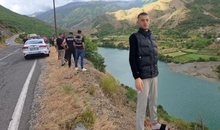
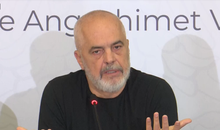
Rama's ultimatum: On Monday, all heads of administrative units must be dismissed
2025-07-11 11:05:59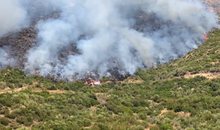
Fires in the country, 4 fires still active, what is the situation?
2025-07-11 10:56:23
Government irony: Rama strips Dredha of power, then demands law and order
2025-07-11 10:49:10
German media: Vlora Airport 'kills' one of Europe's largest wetlands!
2025-07-11 10:37:46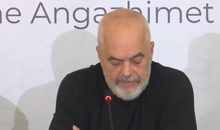
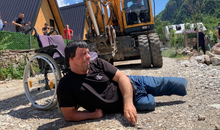
Amid the Alps in Theth, the law punishes even those who try to respect it
2025-07-11 10:14:16
Wanted for theft, 26-year-old arrested in Durrës
2025-07-11 10:03:29
After the dismissals, Rama gathers the mayors in Durrës
2025-07-11 09:42:29
Released on bail, Salianji appears before the Probation Service
2025-07-11 09:34:28

Haxhi Qamil Rama and the directors of the Municipalities!
2025-07-11 09:21:35
30 years since the Srebrenica massacre in Bosnia and Herzegovina
2025-07-11 09:10:52
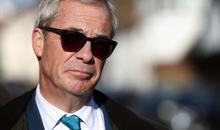
From rhetoric to brandy, POLITICO: 9 things Nigel Farage can do in Albania
2025-07-11 08:53:35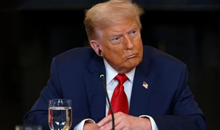
Trump announces 35% tariffs on Canadian goods
2025-07-11 08:39:29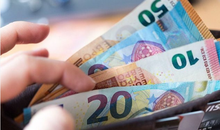
Foreign exchange, how much foreign currencies are sold and bought today
2025-07-11 08:24:25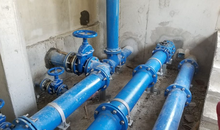

Horoscope, what do the stars have in store for you today?
2025-07-11 07:59:39
Sun and high temperatures, weather forecast
2025-07-11 07:41:09
Morning Post/ In 2 lines: What mattered yesterday in Albania
2025-07-11 07:20:14
Zhupa: In Theth, some Austrian strategic investors want the empty area
2025-07-10 22:57:08
Malltezi: SPAK admits, we are in a process that began with Balla's false report
2025-07-10 22:34:16

Si të çliroheni nga bllokimet emocionale me anë të ushtrimeve
2025-07-10 21:57:24

Lala: Veliaj wanted to return as mayor
2025-07-10 21:40:46

VIDEO/ Brawl in Bolivian parliament, deputies physically clash
2025-07-10 21:20:30


Albania experienced one of the longest heat waves of the last decade
2025-07-10 21:01:09

The Government approves new procedures for declaring residence in e-Albania
2025-07-10 20:39:32

Koka: Northerners will not forget Edi Rama's racist operation in Theth
2025-07-10 20:18:24
The 3 zodiac signs that will be most affected by the 'Full Moon' of July 10
2025-07-10 20:04:49
New director of the National Center of Cinematography appointed
2025-07-10 19:51:12
Korça/ 40-year-old man jumps from fifth floor balcony, in critical condition
2025-07-10 19:40:19
'Tired Woman'/ The Syndrome That Affects Thousands of Women Every Day
2025-07-10 19:34:02
Jane Birkin's original Hermès bag sells for $10 million
2025-07-10 19:26:22

Britain-Ukraine agreement signed for 5,000 Thales missiles
2025-07-10 19:00:25
Fire in Zvërnec, flames endanger two hotels
2025-07-10 18:57:19
Croatia restores compulsory military service
2025-07-10 18:39:01
Spahia: The great truth of the strong accusation of the residents of Theth
2025-07-10 18:35:07


The Supreme Court left him in prison, Meta addresses the 'Constitution'
2025-07-10 17:57:21
New punishment with 'new' regulations
2025-07-10 17:54:46
EU translator fired over fears for Zelenskyy's safety
2025-07-10 17:45:37
'You are a policeman, but not God, take my soul', protest for Agon Zejnullahu
2025-07-10 17:41:21


Video/ Rama repeats the scenario, kneels before Meloni again
2025-07-10 16:56:31
He set fire to a plot of olive trees, 50-year-old man arrested in Shijak
2025-07-10 16:46:19

Rubio: US and Russia have exchanged new ideas for Ukraine peace talks
2025-07-10 16:36:20
Death of 27-year-old, Lipjan Police Commander Resigns
2025-07-10 16:21:28
Video/ An apartment burns in Tirana near the New Bazaar
2025-07-10 16:09:36


Jensila lights up the internet with her birthday greetings to Ledri
2025-07-10 15:42:08
They're full of pesticides! List of 12 products we need to be careful of
2025-07-10 15:31:04

Worker falls from scaffolding in Shëngjin, urgently sent to Trauma
2025-07-10 15:11:03
Malltezi: Within one day they seized my accounts, properties and shares
2025-07-10 15:01:23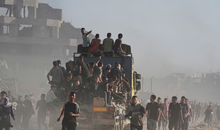
EU: Israel has agreed to more aid to Gaza
2025-07-10 14:55:19


Murder of Reni Dobra, 23-year-old's vehicle pulled from the water
2025-07-10 14:29:23
Trump's tariffs on Brazil raise coffee prices
2025-07-10 14:16:07
Ursula von der Leyen survives no-confidence vote
2025-07-10 14:04:27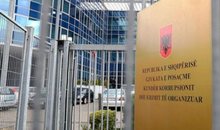

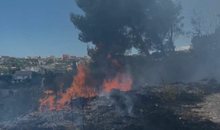
Fire in Lezha, flames near electrical substation
2025-07-10 13:32:24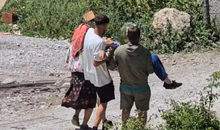
Residents clash with police in Theth, a woman faints
2025-07-10 13:24:38
"Rama and Xanun"
2025-07-10 13:15:46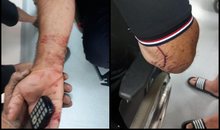

Zodiac signs most likely to get divorced in July 2025
2025-07-10 12:45:51
A scapegoat for an illegitimate Republic
2025-07-10 12:35:02
"He has devastated his own nation"/ Berisha: Rama imprisons his opponents!
2025-07-10 12:26:54

Albanian man injured with knife in Italy
2025-07-10 12:08:55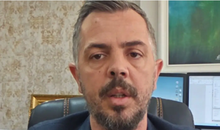





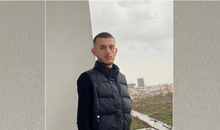
23-year-old in Mat drowned with rope, 4 suspects are being held
2025-07-10 10:58:53
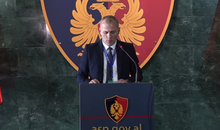
After the dismissals, the new director of the Shkodra Police is appointed
2025-07-10 10:30:10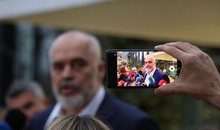
BIRN: Rama's action for public spaces, a repeated spectacle
2025-07-10 10:29:11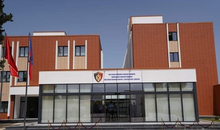
Action in Theth, Shkodra Police leaders dismissed
2025-07-10 10:16:28
Fatal accident on the Tirana-Durres highway
2025-07-10 10:01:58
